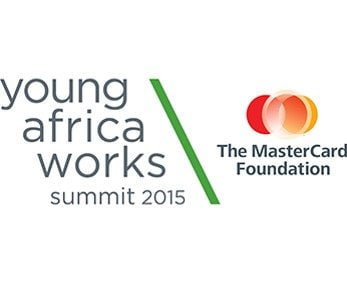

Economy
Mastercard Foundation Research Shows How African Youth Navigate Risk To Survive
The MasterCard Foundation today released preliminary findings from innovative research conducted over the past six months into youth employment behaviours in Africa, where 600 million people are under the age of 25 and 72 percent of its youth live on less than US$2 per day.
The Youth Livelihoods Diaries research highlights the extraordinary lengths that young people go to as they try to achieve sustainable livelihoods.
“There is a distinct lack of research into the daily lives of African youth as they seek secure, safe and better paid work,” said Ann Miles, Director of Programs, Financial Inclusion & Youth Livelihoods at the Foundation. “The agricultural sector is set to create eight million stable jobs by 2020 and up to 14 million if the sector is accelerated. We believe it has to feature prominently in development plans for the continent if we hope to achieve a prosperous future for young Africans.”
Solutions for accessing employment and micro-business opportunities within the agriculture value chain are a main topic at the The MasterCard Foundation’s Young Africa Works Summit taking place in Cape Town on October 29-30. This inaugural event is bringing together hundreds of experts, practitioners, young people and policymakers to discuss practical solutions to address youth unemployment on the continent.
The Summit will explore strategies and solutions to enable young people to transition to more secure employment, focusing on the agricultural value chain as a prime source of opportunity. It will also provide a space to cultivate fresh ideas, partnerships and networks. More than 50 young people will be in attendance to share their perspectives in relation to employment or self-employment in this sector.
Preliminary findings of the Youth Livelihoods Diaries research project indicate that:
– Young people in Africa need to have multiple jobs to survive. Although many of them pursue various micro-business ideas, they often find themselves also having to work in agriculture (sometimes just for household consumption). This experience causes many not to consider agriculture as a viable profession.
– More than 50 percent of young people are able to save money. The majority are saving cash at home rather than using a bank account.
– Young people are increasingly using technology, particularly mobile phones. Although this provides new opportunities, it also presents costs.
– Information about jobs and skills acquisitions is seen as the greatest need for research participants.
In 2016, the Foundation will publish a comprehensive report that fully explores the data findings and patterns. To date, it has committed more than $US300 million to rural and agricultural initiatives that increase access to financial services and prepare young people for employment and/or entrepreneurship opportunities in Africa.
To follow the conversation at the Young Africa Works Summit, follow the Foundation on Twitter @MCFoundation and the event hashtag: #yaw2015. Summit materials can be found here.


 Environment12 months ago
Environment12 months agoAre Polymer Banknotes: an Eco-Friendly Trend or a Groundswell?

 Features11 months ago
Features11 months agoEco-Friendly Cryptocurrencies: Sustainable Investment Choices

 Features12 months ago
Features12 months agoEco-Friendly Crypto Traders Must Find the Right Exchange

 Energy11 months ago
Energy11 months agoThe Growing Role of Solar Panels in Ireland’s Energy Future


















